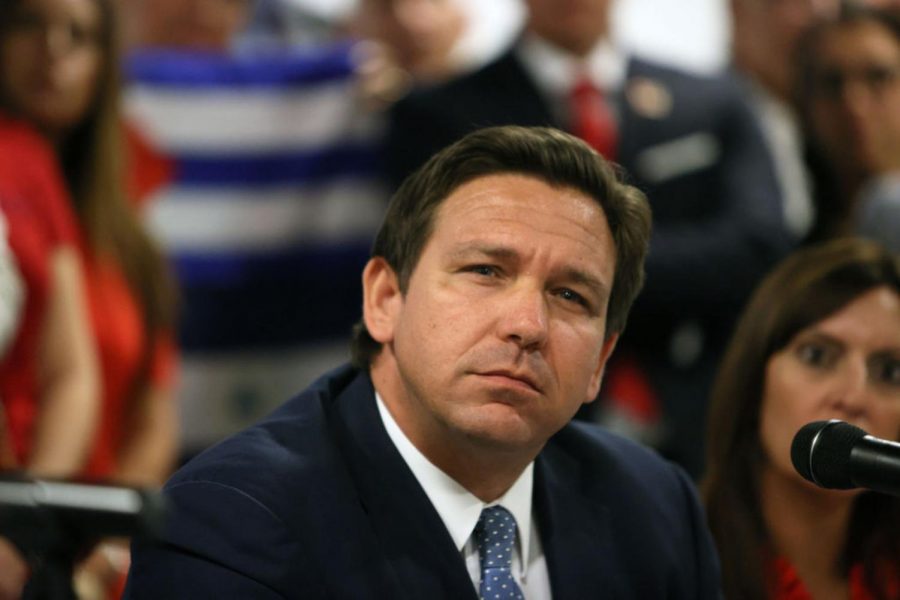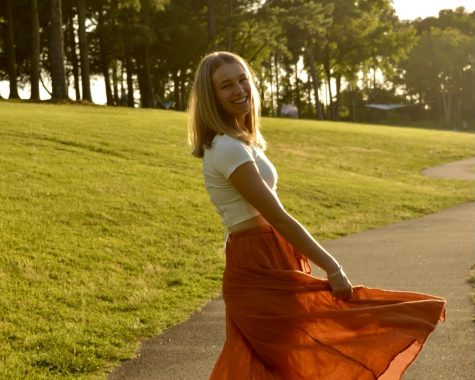COVID-19 policies vary across universities
Southeastern schools have taken drastically different approaches to handling the spread of COVID-19
September 23, 2021
Five weeks into the school year, Wake Forest students are yet again masking up in classrooms and buildings. But to most students, the year is otherwise normal. Social distancing, gathering size limits and outdoor mask mandates have all come to an end. COVID-19 cases continue to be relatively low, according to Wake Forest’s dashboard. As of Sept. 21, active cases sit at 15.
This is not the case everywhere. In fact, COVID-19 cases nationwide are still surging. At the University of North Carolina Chapel Hill, despite a reported 92% vaccination rate among students, there have been a recorded 629 COVID-19 cases since August 2021. Duke reported 168 positives this week from 24,070 tests.
No public college or university in North Carolina has required COVID-19 vaccination, and masking policies continue to vary from school to school. However, North Carolina’s colleges are generally stricter than most in South Carolina and Florida, two other Southeastern states.
In Florida, many private schools require masking for their students. The University of Florida also requires indoor masking. At other public colleges and universities, however, the story is much different.
According to the president of Florida State University, Richard McCullough, public colleges’ hands are tied.
“One of the things that I think is a misunderstanding by the community is, they believe I have the authority to mandate masks and vaccinations, and I don’t,” McCullough said at a meeting of the university’s trustees on Aug. 27. “I don’t have that authority.”
The only Florida college currently requiring COVID-19 vaccination is the University of Miami, and the requirement only applies to employees.
Florida’s governor, Ron DeSantis, has been embroiled in COVID-19 controversies for months. Recently, education has come to the forefront as students aged K-12 and in college headed back into classrooms.
DeSantis originally instituted a policy that would ban school districts from requiring masks for students. He has cited parental choice as the reasoning behind that decision, arguing that schools should not have the power to overrule individual choice.
Leon County Judge John Cooper ruled on Sept. 8 that the state does not have the power to ban school districts from imposing mask mandates, but that ruling was overturned days later.
This is not the first time DeSantis has raised eyebrows on state COVID-19 policy. In the early months of 2021, he chose to allocate the first doses of the vaccine to nursing homes. This policy clashed with other states, which widely chose to allocate first doses to first responders and healthcare workers.
Alex Sink, Florida’s former chief financial officer who ran for governor against Rick Scott in 2010, argued that the governor’s moves have been politically motivated. In an interview, she discussed her belief that Florida’s COVID-19 policy has been based around DeSantis’s political ambitions.
The decision to allocate the vaccine to nursing homes was “somewhat political because seniors are a big voting block in Florida,” Sink said. “The trend here is our governor is a Donald Trump type of politician. Everything here gets politicized.”
As COVID-19 cases remain high in Florida and across the country, Sink blamed state policies for persisting vaccine hesitancy.
“My sense is there’s not a lot of money being spent doing public service ads. Influencers are not out there with the media or going into communities,” Sink said. “We’re not like Ohio, where the governor did a lottery. Other states are really making a huge effort. There’s nothing in Florida.”
Florida’s statewide policies contrast North Carolina’s, where vaccines have been highly incentivized by lotteries and cash rewards.
In South Carolina, the story is more similar to that of Florida rather than its northern counterpart. Furman University and Wofford College are the only two institutions in the state requiring vaccinations. Compare that to North Carolina’s 17 institutions, which does not include the University of North Carolina system, whose schools are requiring masking.
At the College of Charleston, the vaccination rate hovers around 74%. According to a message shared by President Andrew Hsu on Sept. 9, hitting the 70% vaccination mark meant reopening the library and other indoor facilities at 50% capacity, opening residence hall lounges and kitchens and the return of puppy therapy.
“Remember, if we reach 80% of students vaccinated, I will host a pizza party in Rivers Green, and if we hit 90 percent, I will climb into a dunk tank on George Street,” Hsu added. “Who doesn’t want to see that?”
Across the country, COVID-19 cases are still at the highest levels seen since January. As of Sept. 21, the 7-day average of new cases is over 130,000, according to the CDC.















